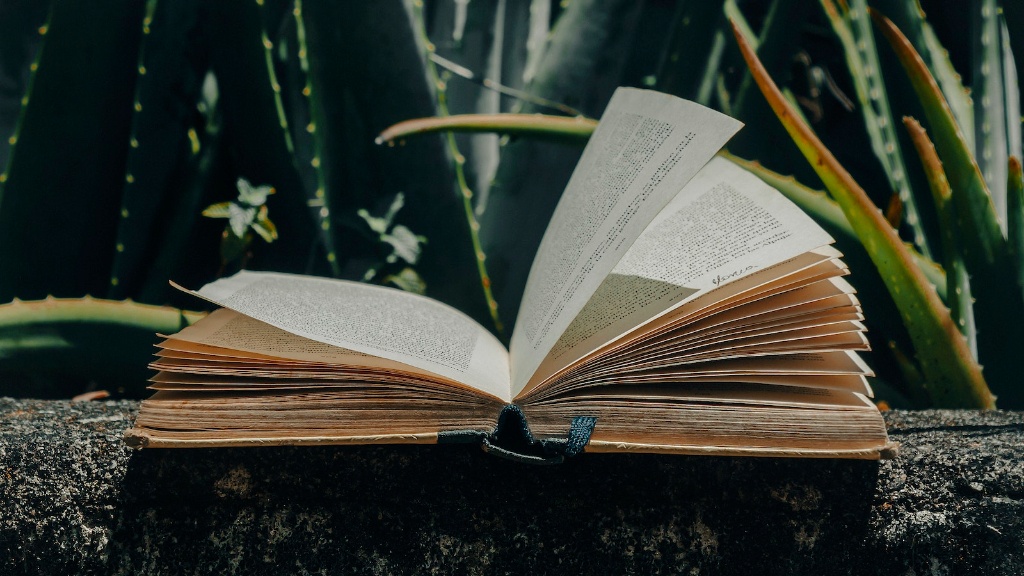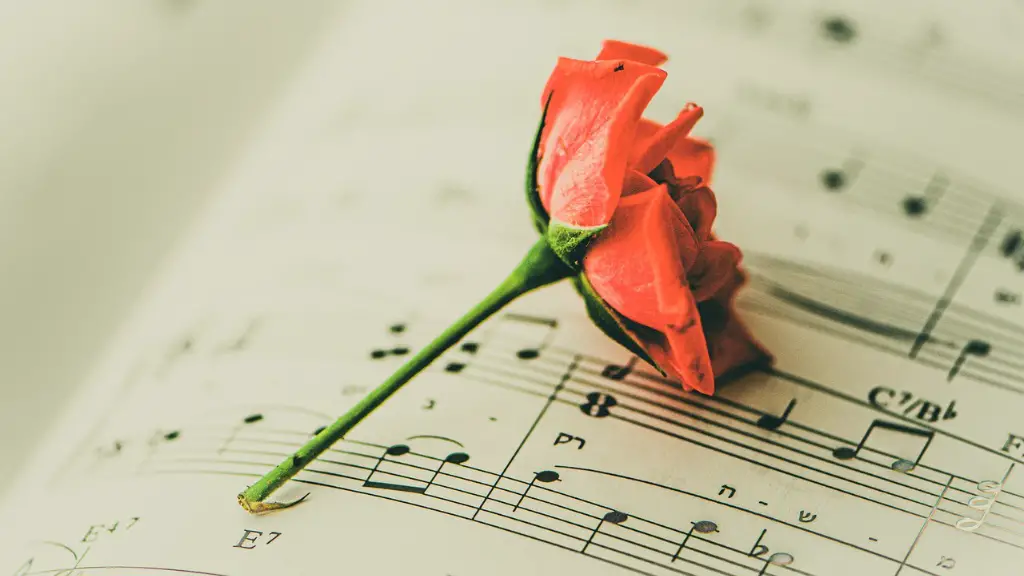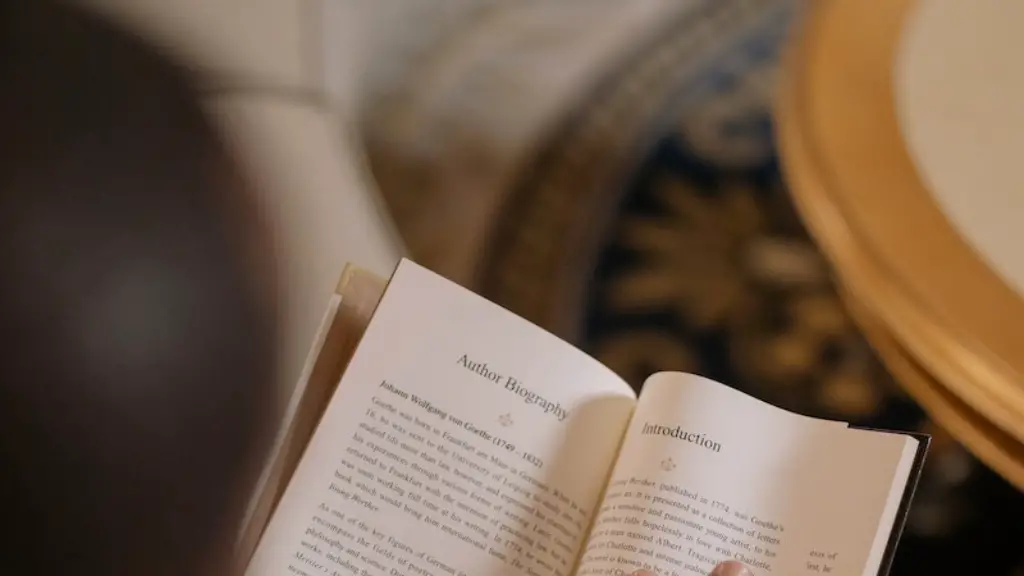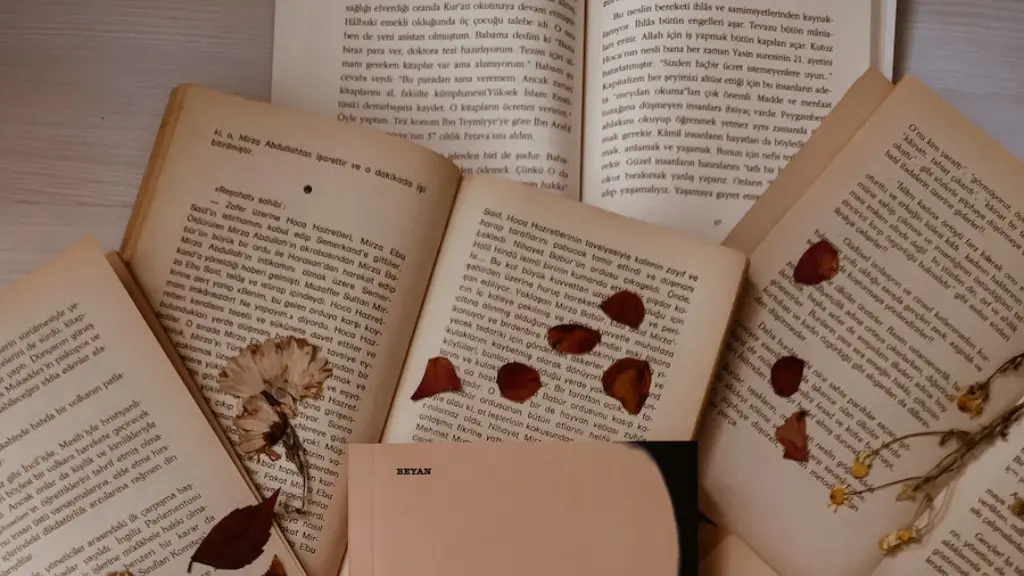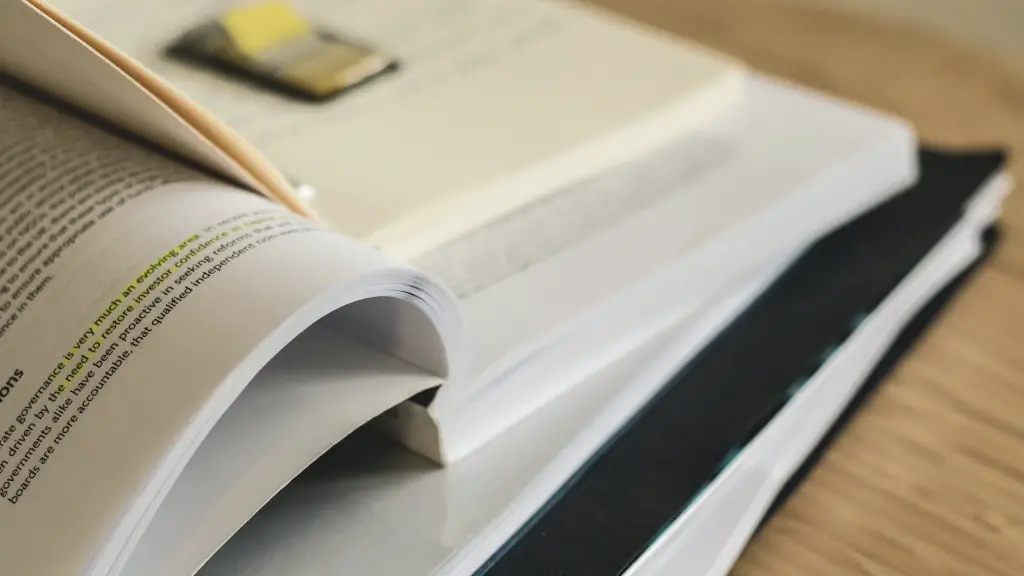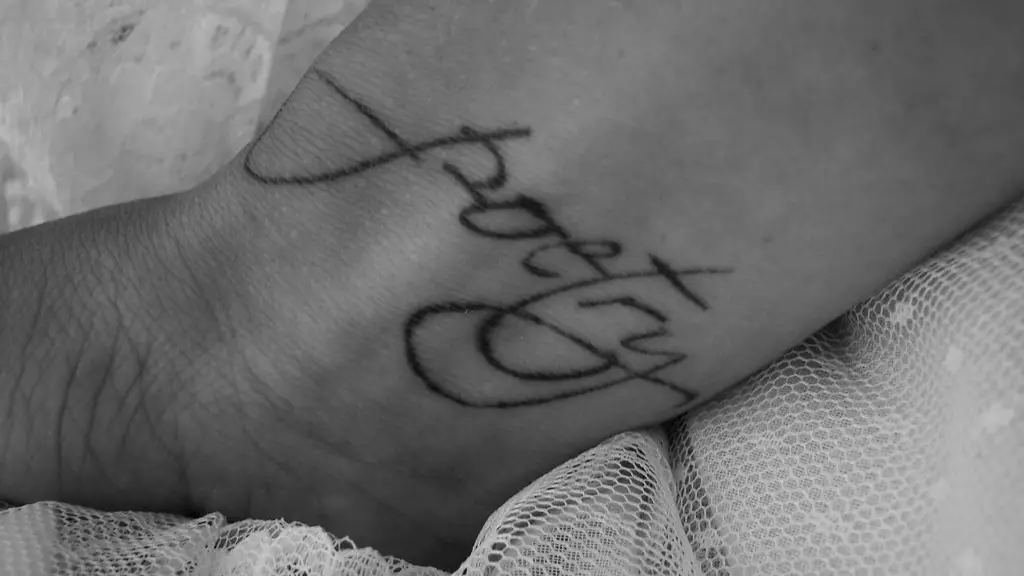Some may argue that during the rise of popular culture, poetry has taken a step back in terms of relevance in comparison to other forms of art. However, poetry has more than its share of importance in today’s society, and its significance only grows stronger as time passes. Through its ability to convey hidden meanings, stir emotion, and convey difficult concepts, poetry carves its own niche and is a powerful source of understanding the world.
Poetry has always had the power to be greater than just a tool of entertainment. From ancient literature to the language we use today, it has always been used as an effective way of conveying information and lessons. It creates insight into our culture and allows us to reflect on societal and personal issues, allowing readers to better understand themselves and the world around them.
Poetry continues to be an important part of our culture and provides a platform for readers to explore and express their ideas. It is an effective communicator of emotions and feelings, whether it’s joy, frustration, sadness, or hope. Through its message, poetry brings us closer to our own humanity, enabling us to understand and connect in a collective understanding.
In addition, poetry helps us to build our understanding of language and the power of written words. It encourages readers to interpret and interpret the words on a deeper level and to reflect on the complexity of our thoughts and emotions. By exploring, questioning, and interpreting the nuances of different poems, we can better understand how language can be used to shape our own lives.
Poetry serves as an integral merging of art and language, and has the power to bring together different communities and ideas. It provides a medium for sharing history, culture and struggles, opening up conversations on important issues. This creates a platform for people to learn, empathize, and work towards creating positive and lasting change.
At a time when the world is more interconnected than ever before and our values and beliefs are constantly evolving, poetry provides us with a unique perspective on our individual and collective experience. Through its combination of emotion and meaning, poetry helps us make sense of our lives and of the world around us. By tapping into our humanity, poetry encourages us to question and be mindful of the ways we act, think, and interact.
Through its unique capacity for emotional resonance and meaning, poetry has a unique and necessary place in our society, empowering us to better understand ourselves and the world we live in. Its power to foster insight, emotion, and understanding is invaluable, and its influence remains a crucial part of our culture and history.
The Role of Poetry in Education
The role of poetry in education is particularly important, as it can be used to help students learn and sharpen their language and communication skills. Allowing students to explore the different forms of poetry, including traditional poetic verse and modern spoken-word poetry, helps them to further understand how to communicate their feelings and ideas. This type of creative learning allows children to generate new ideas and engage with their own creativity.
When exposed to poetry, the opportunity to develop both imaginative literacy and critical thinking skills is present. Having students explore and engage with the literary works of others, helps them develop empathy and a better understanding of the complexities of life, as well as the issues that we all experience like love, loss, hardship, and joy. Furthermore, growing a deep love for language and expressing feelings through creative writing can also be a tool for self-discovery and self-expression.
By incorporating poetry into their teaching, educators can give students the chance to explore their own potential and potential of others. It can lead students to appreciate literature and write their own poems, while maintaining an open dialogue surrounding issues such as mental health, the Black Lives Matter movement, or any other issue that needs to be raised.
Exposing children to poetry gives them an access point to a wider world of literary arts, presenting them with the ability to create their own art and share their thoughts. The use of poetry in education is certainly beneficial in providing students with a deeper appreciation for the different genres of literature and the language that it encompasses.
The Intersection of Poetry and Music
Recently, rap, hip-hop, and other genres of popular music have become more praised and respected for its strong narrative beats, witty and creative rhymes, and state of the art production. Invested artists are now considered poets as well as musicians, took their lyrics as poetry acting as ambassadors for the genre.
This turn of events from lyrical songs to more carefully poems demonstrates how poetry is a rich, complicated, and dynamic medium of expression. The people who create, perform, and listen to this music are those often inspired by, and appreciative of, poetry. They see poetry as an expansive, inventive form, capable of producing depth and originality in sound, language and thought.
This shift further highlights how poetic works can be used to challenge perceptions and celebrate thought-provoking conversations. By taking words and blending it with music, they come together to create a powerful and transformative experience. This experimentation with different formats and styles not only helps to bridge the ever-expanding gap between poetry and music, it also showcases the power of the medium and its impact on those who embrace it.
Through its creative exploration of sound, shape, and rhythm, music and poetry can rise far beyond the confines of the page. They interact and intersect to create something that is both emotionally and intellectually charged, providing an outlet to some of the most authentic forms of self-expression.
As most anyone who has ever encountered poetry and music knows, they can both be incredibly powerful tools to express one’s point of view. When both are used together, they are capable of creating a unique and enlightening experience, one that is capable of stirring up insight, emotion, and even social change.
The Power of Storytelling in Poetry
At the heart of all poetry lies the central power of storytelling. In a world where sometimes it can feel like there isn’t much to say, poetry helps us find different and sometimes unspoken ways to express ourselves. It allows us, even in the darkest of circumstances, to make meaning from our adventures and encounters.
The skill of storytelling is one of the most ancient art forms and one of the most expansive and powerful. Through telling stories, poems reach out to us and provide us with a beacon in the dark times, a tool to heal, a compass to move forward.
It’s no surprise then that we turn to poetry during difficult moments in our lives. It offers us a way to draw out the intangible and make sense of what we feel, of what we experience, of what we can’t explain. Poetry makes the otherwise overpowering emotions more manageable, offering us the helpful comfort of being understood.
The power of story lies in its ability to convey big ideas in a smaller, more intimate form. By conveying these stories with passion, emotion, and conviction, poetry allows us to connect with each other in an attempt to heal, to learn, and to grow.
The stories that poems tell remind us we’re not alone in the universe, that even in hard times, it’s possible to make sense of it all. In this way, poetry serves as a reminder that hope is always possible, that understanding can be found despite our differences, and that peace of mind can be found even in the darkest times.
The Diversity of Poetry
No two poems are ever the same; each spoken or written piece contains a distinct richness that can never quite be replicated. This variety adds a layer of complexity and depth to poems, allowing us to experience and discover new interpretations and meanings.
Poetry’s diversity stretches not only across a large scope of topics but also through language, from the most formal of grammar to more everyday phraseology. This flexibility allows writers to reach different audiences, helps bridge gaps in understanding, and gives writers the power to find the most suitable form for their subject.
Different styles, structures, and rhythms of poems can also add different layers of complexity and emotion to a piece. For the experienced reader, this can create a greater understanding, whereas for those who may not have much experience with poetry, it can be a means of introducing poetry in a more accessible and interesting way.
Other avenues of exploration such as multimedia, audio, and visual scenarios can bring further understanding to the art form, further diversifying what people perceive as poetry. This evolution has opened up interesting new opportunities for poets, experimenting with a multitude of styles and ways of expressing ideas.
The diversity of poetry, whether it’s on a surface level or on a deeper level, continues to draw in more and more readers, uniting them through its complex themes and relevancy. This development emphasizes how the craft continues to evolve and remain essential in our modern society.
The Digital Revolution of Poetry
The proliferation of the internet and social media have pushed the limits of poetry even further, giving poets access to an abundance of media, resources, and platforms to share their work with the world.
Social networking sites like Twitter and Instagram have become powerful arenas for poets to network, connect with readers and other writers, and reaching a far wider audience in the process. This has allowed an entire new generation of poets to reach out and find their own individual voice, each one unique in its own way.
The world of online publishing has also allowed poets to self-publish their works and distribute them to a global audience. Websites such as Poetry Slams, Amazon Kindle and other online poets hubs are just some examples which have further cemented the digital revolution of poetry and its reach.
This recent development in poetry has also allowed more writers to contribute to the field, whether it is through spoken-word, rap, rap-poetry or any other inventive form of poetry. The digital platform is also helping to open up the discussion of social and political issues, further expanding the impact of poetry to a whole new level.
The digital world of poetry offers tremendous potential, and with even more new platforms and resources being created, this could mean even more opportunities for poets to reach a larger audience whilst preserving and enhancing the essence of poetry at the same time.
